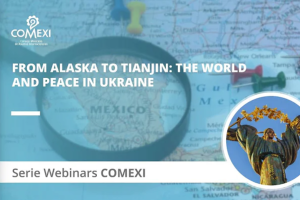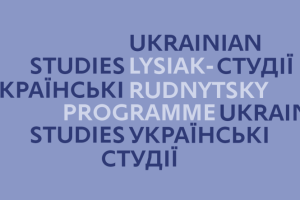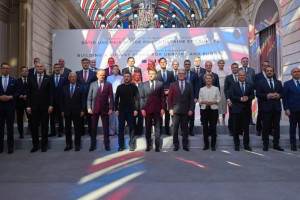Foresight Workshop on the Future of the War in Ukraine and the Upcoming (In)Security Order of the Post-Soviet Black Sea Region
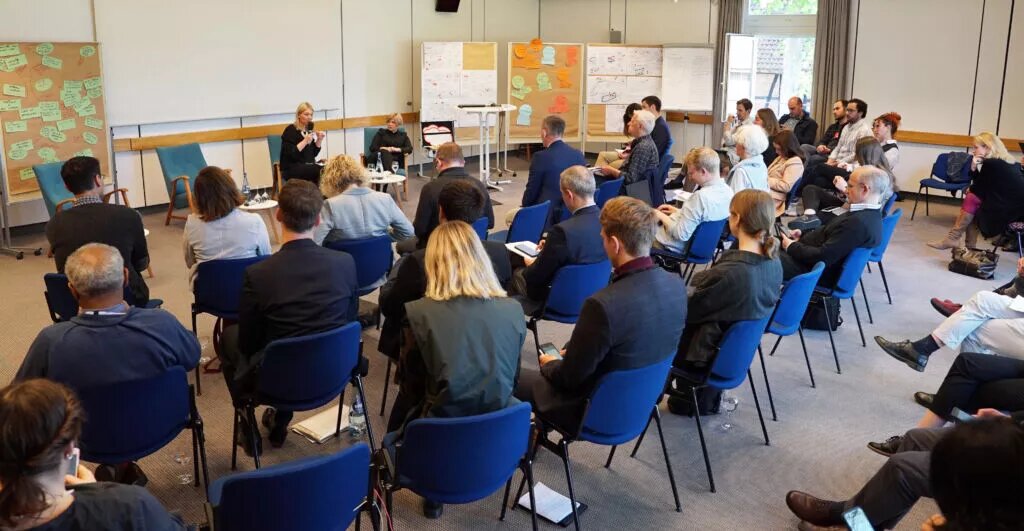
Source: Evangelischen Akademie Loccum
Russia’s invasion of Ukraine signifies a major turning point. While it was clear to many observers that Europe’s security architecture has become brittle in recent years and that the territorial conflicts in the Post-Soviet space posed a considerable escalatory risk, the very high degree of military aggression with alarming numbers of civilian casualties we daily witness in Ukraine is nevertheless a shock for most experts. Swift reassessments of security and foreign policy priorities are now underway in many European capitals. This transformative geopolitical process is in full flight, although bumpy and wobbling in some countries – especially in Germany!
The aim of this foresight workshop is to analyze major trends and developments that currently shape the war as well as the larger conflict and to extrapolate contrasting scenarios about the future which then might provide orientation and indicators for potential policy options.
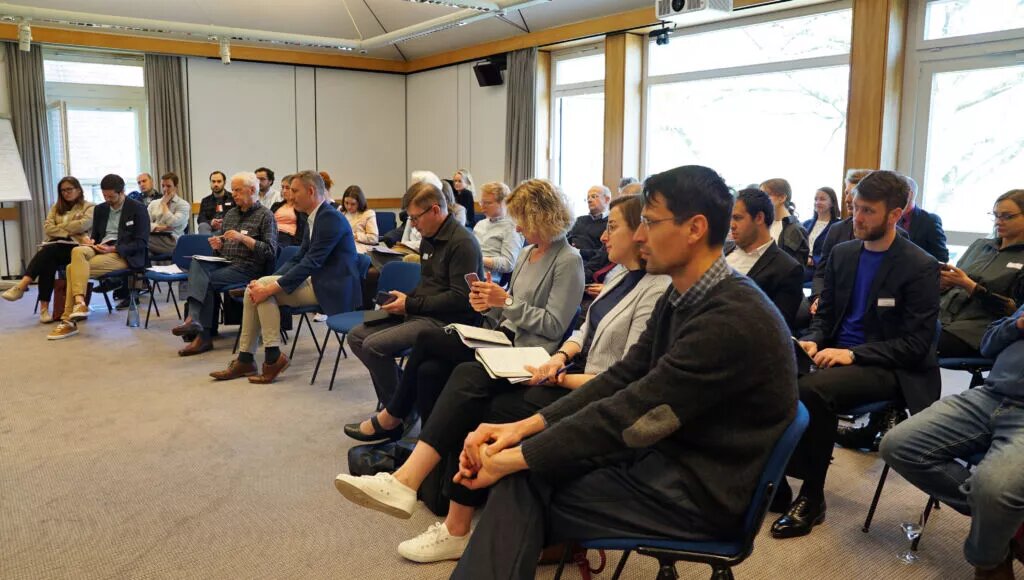
Petro Burkovskiy, Executive Director of the Ilko Kucheriv Democratic Initiatives Foundation, shared Ukraine's view on the outcome of the geopolitical crisis and the need to revise the strategic assumptions that are prevalent in the West.
Recapping the Steep Geopolitical Learning Curve: What Strategic Assumptions to Keep and What to Toss?
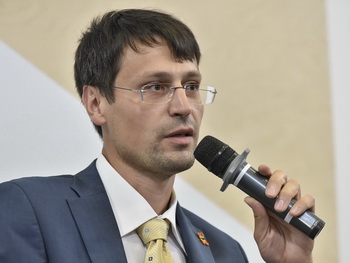 Dear colleagues,
Dear colleagues,
Let me start with the question, which I think is a key question despite its retrospective nature.
Has this war between Ukraine and Russia been inevitable?
My point is that it was inevitable due to the western attitudes to Russia after it invaded Ukraine in 2014.
I remember how in 2016, while discussing outcomes and perspectives of the western, US and EU policies, toward Russia with Wilfried Jilge and Dan Hamilton in Kyiv, we urged our colleagues to prepare for the “nightmare scenario”, a full scale and open Russian invasion to Ukraine.
We continued to do it in the next years up until the end of 2021. Few people agreed and few understood that the so-called “hybrid war” in Donbas and occupation of Crimea were only the first steps at the beginning of the full-scale war.
We warned about the western prejudices toward Ukraine and mistaken perception of Ukraine as a “part of the problem”. Minsk agreements, pushed by Kremlin, were considered an “exit” from the conflict, while little attention was paid to the fact of how detrimental these agreements were to the national security of Ukraine.
Why has it happened?
I think that to some extent that happened because many western analysts disregarded the classic approach to Russian studies. The history of Russia was somewhat forgotten. All observations about the nature of the Russian state and society, made by Sigismund Herbertstein in the XVI century, Astolphe de Custine in the XIX century, and Richard Pipes in the XX century were thrown away. Meanwhile, if you read carefully all three authors you can see early warning signs of the preparation for the war because little changed in Russia when it comes to aggression against neighbors.
Little attention was paid to the study of Russian imperialism and colonialism and their revival under Putin’s rule.
Moreover, the voices of Eastern European scholars were ridiculed by scholars from Germany, France, and the US. Unpleasant facts about Putin’s Russia were avoided.
Look at the three examples of such attitudes.
First, Ukraine was strongly criticized for trying to circumvent Russian media influence. Ukrainian authorities were accused of attempts to violate freedom of speech, while it was a constrained half measures to limit Russian disruptive disinformation campaigns.
Second, the Russian tool of “Russian culture” as soft power was underestimated in Europe. Many EU countries, stimulated by generous money contributions, allowed Russians to continue their propaganda of “Russian peacefulness” disguised as cultural events (concerts, festivals, etc).
Third, economic interdependence between the EU and Russia was considered a tool of rapprochement, although Russia used it to advance its economic interests and build privileged relations with key EU member countries.
Now, everybody can see how Russia weaponizes its media, its cultural ties, and market shares to destroy European unity. Ukraine has been paying a great price for opening the eyes of European elites to this ugly truth.
Many experts and politicians in the West viewed Russia as a weaker player that cannot create a formidable challenge to the Western order, at least in Europe. I wonder how many people forgot lessons of the XX century when other weaker players successfully did it.
Raimond Aron described how Hitler succeeded in defeating France and Britain by a combination of bluffs and bets.
Putin is doing the same thing today.
Putin’s main bluff is that Russia can destroy Ukraine before the West can give sufficient support and Ukraine is able to use it against Russia. Ukraine calls the bluff and exposes Russian weakness. Nevertheless, Putin continues his bluffing with the help of nuclear blackmail. We will see whether the West has learned this lesson and has the will to repel Russian actions.
Putin’s bet is that Ukraine will inevitably fail due to domestic troubles, thus there is no point to invest efforts in bringing Ukraine into NATO or the EU because Ukraine is doomed to remain within the Russian sphere of influence.
Even now when Russia is trying to persuade the West that the war would be long it is a dangerous bet and we are not sure whether the West is ready to increase the stake.
Having said this, I would like to draw our attention to several key points that can define the course of events in the near future.
- The West must define its approach to sanctions against Russia:
- Whether they become preventive and strong to contain Russian aggression
- Or they remain as punishment for what Russia has done with little effect on its policy (as we see right now)
- Or it’s just a political face-saving measure until the next elections
- The West must define its attitude toward Ukraine:
- Either Ukraine is recognized as a European nation and a future member of the EU and NATO
- Or Ukraine remains a “grey zone” between Russia and the West
- Or Ukraine is left within the Russian sphere of influence
- The West must decide about its relations with Russia:
- Either Russia is a rogue state, isolated from the civilized world
- Or it is allowed to play a “role” of counterbalance to the West/China
- Or it is restored as an “integral” part of the European security system
Finally, the West must give an answer to the issue of war. Today, there is a chance to make the war quick, although very violent and destructive. At the same time, the war can become long and ruinous for all sides.
Ukraine has better chances to win a quick war but it cannot do it without the decision of the EU and US. Time is running out for positive scenarios.






